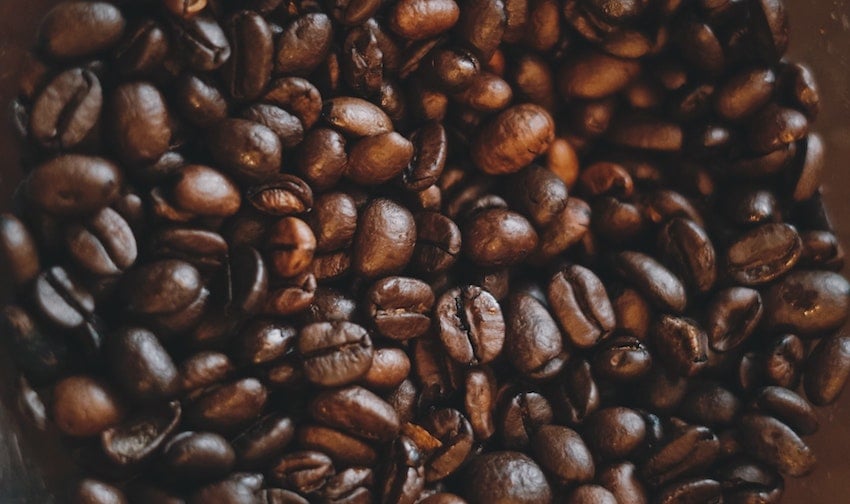When you purchase fresh coffee beans, you’ll probably notice a roast date labeled on the bag and you might wonder: “How long do coffee beans last?” “Do coffee beans expire?” At Seattle Coffee Gear, we receive these questions a lot and it's a tough one to answer. We adhere to roaster guidelines for freshness and that right there is the keyword: freshness. Not expiration in the way most people understand it like a sour glass of milk. We could quickly agree that those foul smelling notes mean the milk has expired, but open coffee roasted six months ago and there probably won’t be that telltale reek. However, your nose may detect something is different. Coffee is volatile and the coffee industry only agrees on one fact: coffee changes.
To answer the question, “How long do coffee beans last?” Let’s be frank: Until it stops tasting good. Let’s break down what “good” coffee is.
Coffee Freshness
In the coffee community, freshness is generally agreed upon by the roast date. The closer it is to the roast date, the fresher the beans. The moment coffee is roasted it begins to stale thanks to oxidation, not time. Of course, the more time oxygen has to work on the beans, the more it’ll stale. However, roasters haven’t agreed upon what “stale” means for coffee. As James Hoffman puts it in The World Atlas of Coffee; “The specialty coffee industry has failed to make a real impact because there is no strong agreement on how quickly coffee goes stale, and at what point it will have passed its best-before date.” Our practice at Seattle Coffee Gear is to follow the individual roaster’s guidelines, which are between two and four weeks then we’ll pull the coffee off the shelf.
How long the coffee freshness lasts after roasting also depends on roaster’s processes like the packaging. There are different types of bags like the triple-ply foil that prevent fresh air from getting in while a valve allows carbon dioxide out. It’s a common packaging we see with our roasters and at your local grocery store. There are also packaging techniques that factor in coffee freshness such as nitrogen flushing. This process, used by Lavazza, helps preserve coffee beans by flushing away the oxygen and so temporarily eliminates it going stale. We say temporarily because as soon as you open the bag, oxygen finds its way in and begins to stale your coffee.
How To Tell If Coffee Is Bad
We know you were thinking about it. You’re probably sniffing your bag of beans trying to decide if it was bad or stale. Your nose is your best detector. “The human tongue can only really taste five flavors—sour, sweet, salty, bitter and umami,” our Portland store manager, Joe, says. “The nose, however, is a magical input drive that can delineate between thousands and thousands of distinct compounds and the brain processes this information in the same place/way. Smell and taste are intimately linked.” So when your nose can’t smell the coffee, you can assume the flavor is gone.
Of course, what’s most important for coffee drinkers is flavor, and the freshest beans don’t guarantee the best flavor. In fact, we’ve brewed beans a month past their roast date and loved them. We’ve had those same beans right after roasting and preferred the aged beans. That’s why we think how long coffee beans last can be gauged by flavor. Each coffee’s flavor profile is different, but once the volatile aromatics break down, so does the flavor. Think of it in terms of cooking. The oils carry the flavor and so when the oils in coffee are gone, so is the flavor. “As they are volatile, these compounds slowly leach from the coffee so the older it is the less interesting it will taste,” writes Hoffman.
Storing Coffee
The best way to store and keep your coffee as fresh as possible—because inevitably, you will open your freshly roasted beans and start the cycle of oxidation—is to keep it in a cool, dry place. Oxygen and moisture are the enemies of coffee. Once water comes in contact with beans, it starts the brewing process and extracts the flavor. That’s why products like the AirScape Coffee Bean Canister are excellent to keep around since it uses a one-way valve to push out oxygen and air-tight lid to keep out the elements—hello, fresh coffee.
Freezing coffee, then, seems like a bad idea but it’s a trend we’ve seen in the coffee community. It’s not all misplaced either. Done properly, freezing coffee has its benefits. One benefit is using it for espresso to extract a richer, thicker body. If you freeze ground coffee, it’ll dissolve faster in hot water and produce a fuller flavor. However, once you take the coffee out of the freezer, you can’t let it thaw. Any moisture that condenses on the beans will start the extraction process on your coffee. A way around this is to measure the dosage for how much coffee you’ll need.
How Long Do Coffee Beans Last?
In the coffee community, the word expired describes coffee differently than other foods like milk. There’s no defined expiration or best-by date for coffee. We can only guarantee that coffee is volatile substance and therefore will rapidly change. How long coffee beans last also depends on the type—sorry didn’t mean to throw you a curveball. Ground coffee, for example, has more surface area for oxygen to leach out the flavor compounds. If you wanted to keep your coffee fresher longer, we’d recommend leaving the beans whole and grinding them only when you’re ready.
Lastly, the best way to determine if your coffee is fresh, like we’ve discussed, is to follow your senses. If you no longer taste the notes you love, it’s safe to say your coffee expired and it’s time for a new bag. What’s really important is if you still enjoy your coffee regardless of the best-by date. Of course, at Seattle Coffee Gear, we make sure to adhere to roaster’s guidelines and pull coffee that’s past the freshness date provided. While we enjoy sipping our coffee sooner rather than later, we follow our senses and let the coffee speak for itself.


